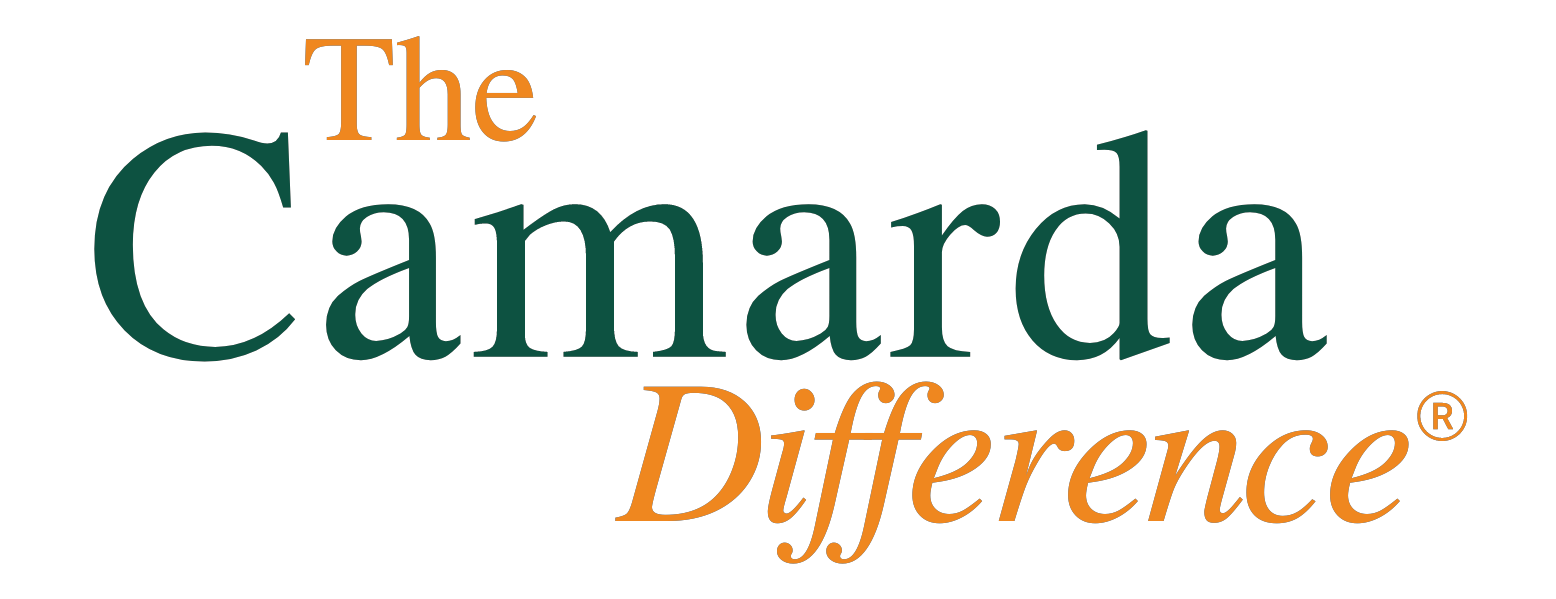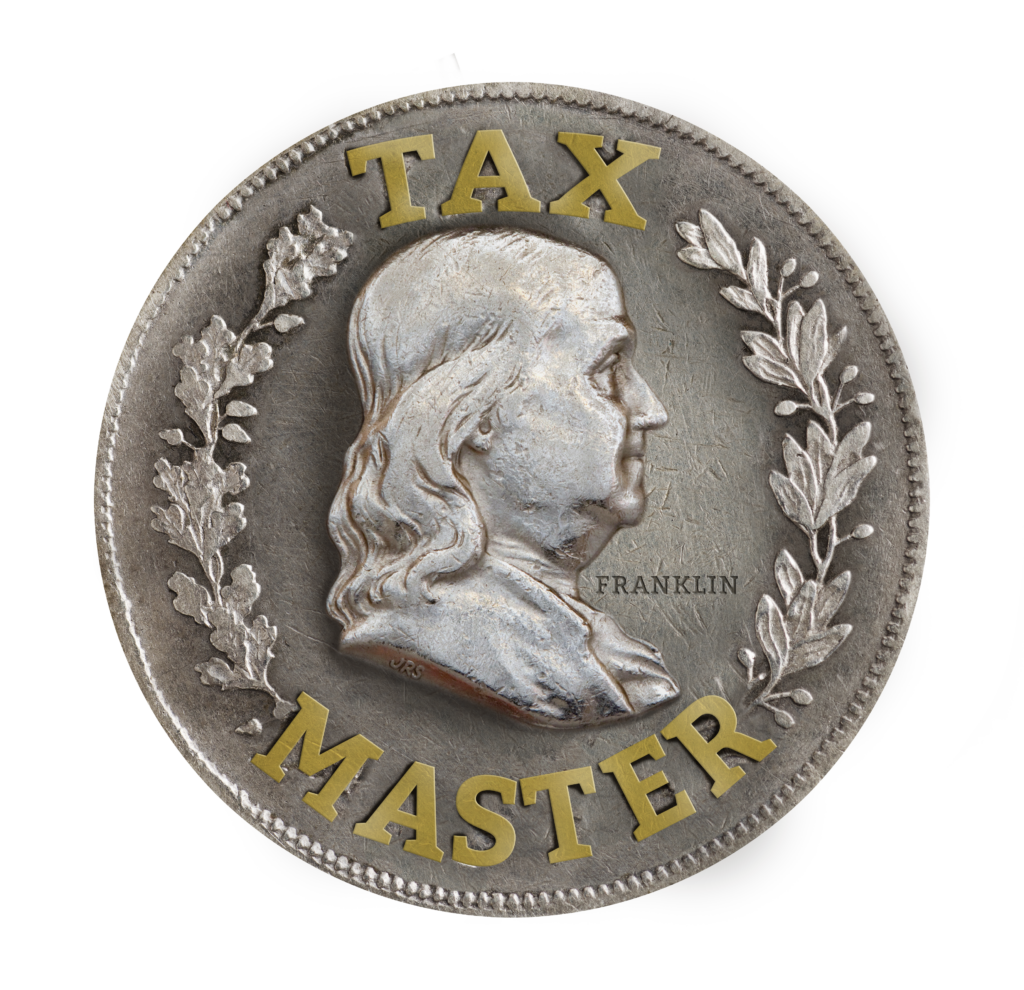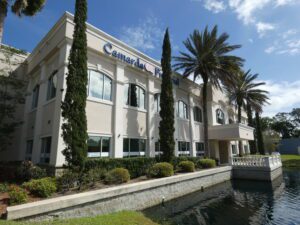“Our Wealth 360o is a comprehensive assessment of your total wealth situation. It encompasses investments, estate and trust, tax, asset protection, retirement, and much, much more.”
Answers To Your FAQs
You should expect our uncompromising fiduciary loyalty and advice, driven by looking out for your best interests first and always. No commissions or hidden costs. Just fully disclosed fees structured so that the better you do, the better we do.
You can also look forward to a Total Wealth CareTM relationship, managed by a dedicated Personal Wealth Advisor (PWA) who knows you personally and reports regularly to you. Your PWA implements and updates your Portfolio Management Plan, runs your financial planning and long-term wealth plan, and coordinates the team for tax, estate planning, and other needs.
Your PWA is your personal wealth concierge. They are always available to direct your planning on all things financial from Social Security claiming strategies, ROTH conversions, estate and asset protection planning, tax strategy, business and real estate questions, loan advice, college funding, and much, much more.


Our clients range from “millionaire next store” folks to quite wealthy families with complex estate, tax, asset protection, and other planning needs. Typically, they are retirees, professionals and executives close to retirement, and business owners past and present. Many of our clients have been with us for decades, some on the second generation. Regardless of client situation and needs – from those living off the retirement income their portfolios provide to professionals and entrepreneurs building tax-efficient generational wealth – Camarda is honored to treat them like family and provide highly customized solutions based on their desires and needs.
Long before the investing world was rocked by the massive Bernie Madoff fraud, Camarda enacted protective protocols to safeguard clients’ accounts. Since our beginning in the 1990s, Camarda has protected accounts using institutional custodians like Vanguard, Fidelity, Schwab and TD Ameritrade. Accounts are always in clients’ names, never in Camarda’s. This is a very powerful barrier to protect your wealth from fraud.
Clients have 24/7 direct access to their accounts. You can check your values at any time, and move your money whenever you want. You can instruct these institutions yourself, whether to make changes, disburse funds, or even revoke Camarda’s management oversight instantly if you wish. Another substantial layer of protection comes from the very strong anti-fraud and other protection protocols these custodians utilize to assure that funds are accessible only to clients.
We have a published privacy policy that can be summarized as:
- We use physical, electronic, and procedural safeguards per Federal standards to protect clients’ nonpublic personal information.
- Our procedures are designed to secure confidentiality and protect against threats or hazards to the security or integrity of client records and information.
- Our policy restricts access to all current and former clients’ information to those employees and affiliated/nonaffiliated entities who need to know that information in order to serve the client.
- We will only disclose information to others if
a. You have authorized us to do so.
b. We are required to by law or regulation.
c. Such disclosure is permitted per federal and/or state privacy regulations. - We won’t sell or otherwise share your information with outside companies, marketing agencies, or others outside of our family of entities (such as The Family Wealth Education Institute and Camarda’s TaxMaster). Our complete privacy policy can be found at https://www.camarda.com/privacy-policy
Our investment decisions are driven by two key principles:
- Targeting superior returns for income and portfolio growth, and
- Managing risk with a goal of avoiding losses in declining sectors or markets
We use a variety of disciplined investment methodologies, including fundamental and technical analysis. We believe in making decisions based on “what is” not “what should be.” Our approach considers current market conditions and integrates both economic data and actual price movements. We seek to remain nimble and yet disciplined in both up and down markets. We consider both top-down/macroeconomic, and bottom-up/sector & individual security perspectives, in decision-making.
This means if an asset class appears to be in an uptrend, we look to have exposure until the trend changes. If we decide the trend has changed, we look to get out and shift exposure to more promising classes, or to cash as a protective measure.
Where asset classes or entire markets appear to be in a downtrend, we seek to sequentially trim or eliminate exposure depending on our anticipated severity of portfolio impact.
We watch the markets on a regular, continuing basis, analyzing conditions and standing ready to move quickly when appropriate.
Camarda portfolio decisions are made by our Portfolio Management Board, as led by our Chief Investment Officer, who Chairs that Board. Collectively, the Board has many decades of experience and is extensively credentialed, including Ph.D.s and CFA®s.
We use a highly customized approach designed to incorporate:
- Your portfolio growth & family wealth goals
- Income needs across the timeframes of your planning horizon
- Tax control considerations
- Your total financial picture – not just the part we manage
- Your investment preferences and instructions
- Your sensitivity and concerns about risk
As part of our Full-Service Financial Planning, we develop a custom Portfolio Plan for each client, based on a personalized Investment Policy Statement for your family. We custom craft each portfolio, blending from our menu of proprietary Camarda strategies, in a full discussion with you.
We also incorporate any specific preferences you have, including advising on existing positions you don’t want to sell for tax or other reasons. Unlike most advisors we know, we can even manage your current 401ks, without you leaving the plan or having to move assets out. We’ve even built similar systems for 529s, no-commission annuities, and other “hard to manage” investments.
And as a new client, we won’t change or do a thing to your existing investments until you fully understand and give us the green light to begin managing your accounts according to the agreed upon plan. Once set up, we regularly discuss and adjust as you, and the world, change.
We think you’ll find the Camarda way very powerful and quite different! Unlike other advisors who claim “no cookie cutter portfolios!” but whose clients often seem to all have the same things, our approach is truly customized and tuned to you – and can be as simple or sophisticated as you need and wish.
Our fees are based on the value of your managed assets and designed to help align our interests – the better we do for you, the better we do.
Our fees are fully disclosed and transparent – what you see is what you pay. This is quite different than other advisors. The difference is we tell you what we charge, while others’ total costs may be hard to spot. More importantly, we have no incentive to recommend one investment over any other – our only objective is achieving the best portfolio for you.
Many advisors are “fee-based” – where you pay an obvious fee but also hard-to-spot internal product costs & commissions. Many more are pure commission, which can look cheap or even free, but whose actual costs – buried in mounds of legalese disclosure – can cost much more than Camarda’s clear and transparent fees. They can also motivate an advisor to recommend what makes them the most, not what is best for you.
Our standard fees cover Full-Service Financial Planning, not just investments. Also, unlike the vast majority of advisors, we are true fee-only fiduciaries, and accept no commissions or other incentives on our recommendations. Our advice is solely based on what we think is best for you, without the conflicts of “kickback” compensation.

The Family Wealth Education Institute – FWEI – was founded by Dr. Jeff and partner Kim Camarda. Its mission is to provide astute wealth education and techniques to the public at large, including Camarda clients.
The Camardas formed FWEI to promote better wealth education for America’s successful families, whom they found too often tragically overpaid taxes, were misadvised on an estate and asset protection planning, and misled by poorly trained, non-fiduciary advisors on investment, insurance, and other high-wealth matters.
FWEI offers a catalog of online courses via its wealthmasterclass.org website. These classes and other FWEI resources are freely available to Camarda clients.

TaxMaster offers non-SEC-defined wealth management advice and services. In other words, it provides non-securities-investment wealth management advice.
This includes estate and asset protection planning, tax optimization strategies, tax return preparation, business, asset protection, estate planning, entity set up, and the development and execution of legal documents like trusts.
TaxMaster is a shared owner affilate of the Camarda Wealth Advisory Group but separate from investment advisor Camarda Financial Advisors for regulatory reasons, and to respect and accommodate the separate prerogatives of the SEC and IRS. Functions are highly coordinated to help deliver on Camara’s Total Wealth CareTM/one-stop value proposition. TaxMaster fees – typically for tax research, tax returns preparation, legal documents, and entities structure execution – are separate and distinct from Camarda’s. TaxMaster’s team includes Ph.D.s, CPAs, attorneys, & admitted Federal tax practitioners.
No, though we generally think it’s a much better deal for you if you let us manage your portfolios. Non-investment clients do not get priority in workflows, typically pay higher fees for the same TaxMaster or other work, and may be waitlisted or turned away depending on how busy we are.
We consider ourselves a Total Wealth CareTM shop, with coordinated portfolio, tax, retirement, estate, and other ongoing advice. Not only do we believe we can render much better wealth results by handling it all, but we also feel strongly that it’s much more cost-effective for clients.
While we do accept non-portfolio clients on a limited basis when we can make time for them, fees tend to be much higher, as portfolio clients get preferential rates and expedited service.
Our standard fees cover Full-Service Financial Planning and personal wealth coaching, not just investment management. Advice on estate and trust planning, asset protection, tax, retirement, insurance, even business, real estate, and much more are all included. Despite all this scope and value, our transparent fees may be cheaper than commission competitors’ costs, which could be motivated primarily by advisor compensation, not your wealth health. You may have struggled with other advisors charging far more but delivering far less. Are you even certain of how much you are actually paying? With Camarda, our fees are clear. What you see is what you get: clear, fair pricing, and expertise motivated by what is best for your family wealth.
Refined over some thirty years, Camarda’s proprietary WealthMax 360° assessment produces a very fast and comprehensive “X-ray” of your total wealth goals, challenges, and opportunities.
During the no-charge WealthMax 360° session, we frequently discover important shortcomings and remedies in the areas of tax, retirement, portfolio structure, estate & trust, asset threats, and protection tactics, and much more.
You are free to use our findings in any way you want, even with your existing advisors, though we truly believe improvements will be faster and of higher quality if you let us quarterback them. If you come on board, we develop a written Total Wealth CareTM to-do plan based on your wishes and instructions, then refine a completion schedule that won’t overwhelm you but we still priorities and integrate related functions so the important work gets done on a timely basis.
We can execute the plan with our in-house team of TaxMaster tax, legal and other professionals, or work with your outside advisors – your call.

You may be surprised to learn how easy it is to be a “financial advisor”. No licensing or credentials are required by government regulation. And while investment advice is regulated, the requirements are surprisingly low. It only takes a few weeks of self-study to take the advisors’ exam. No experience or education is required, and even those with criminal records or found cheating on exams can potentially get licensed. It’s actually much easier and faster to get a license as an investment advisor than to get a barber’s license. But unlike hair, wealth mistakes may not quickly grow back!
But these are extremely complicated and critically important matters. You have so much at stake in the advice you take. Don’t you want deep thinking and extensive training to target the best results – results your retirement and so much more depend on?
By contrast, Camarda’s team is educated and credentialed like no other advisor we know. We are led by Ph.D.s. Our Portfolio Management Board includes multiple Chartered Financial Analysts (CFA®)- only about 2% of investment advisors have the CFA®.*
Our Chief Investment Officer holds both the CFA® and CFP®/Certified Financial Planners designations. Only about 0.1% of investment advisors have both. He also holds other highly regarded portfolio designations of CMT® and CIMA® – and seven others, including the advanced Certified Private Wealth Advisor®/CPWA®.
When you consider our Ph.D.-designed and led wealth enhancement systems, we think you’ll agree that our expertise, structure, and bandwidth can be a huge asset to you and your wealth health.
*Derived from data in a report from The Financial Industry Regulatory Authority: 2022 FINRA Industry Snapshot. FINRA. 2022. https://www.finra.org/sites/default/files/2022-03/2022-industry-snapshot.pdf and a report from Investment Professionals Worldwide Pass CFA Program® Examinations: https://www.cfainstitute.org/en/about/press-releases/2020/investment-professionals-worldwide-pass-cfa-examinations
Getting one-stop advice on the many critical wealth management areas can be a challenge. Many firms specialize in just one area, leaving you to look elsewhere to try to find the rest of the pieces to put the confusing wealth puzzle together.
Camarda is quite different, offering broad expertise, all in-house. This makes for less work and uncertainty on your part, and can lead to far more efficient, tightly-quarterbacked solutions.
Our teams* specialize in all the following, and much more:
- Portfolio and investments
- Detailed, written financial and retirement plans
- Retirement accumulation and lifetime income strategies
- Tax research & reduction strategies
- Tax returns preparation (through TaxMaster*)
- Bookkeeping, payroll, and accounting (through TaxMaster*)
- Estate and trust planning (including legal documents preparation & execution through TaxMaster*)
- Asset protection planning (and structures through TaxMaster*)
- Insurance and risk management advice
- Real estate investment, management, and transaction advice
- Mortgage refinancing and other debt analysis
- Business entity advice (and formation through TaxMaster*)
- Business consulting, including liquidity event and sale structuring
- Executive compensation
Knowing and finding top talent in multiple areas can be daunting.
Not at Camarda. Not only do we design and masterplan your entire wealth process, but
our team can get it done all in-house. This saves time and cuts expenses and risks, to build family net worth faster. We are passionate about making sophisticated planning simple and easy for you. We want to “wow” you with our level of total wealth management.
One stop. One wealth coach. One easy experience, laser-focused on one thing – supercharging and protecting your family’s wealth.
*Camarda is affiliated through common ownership and control with TaxMaster.US, LLC (“TaxMaster”), a consulting firm providing estate planning, business planning, insurance consulting, tax services, accounting, and/or other non-investment advisory services to its clients and Family Wealth Education Institute (“FWEI”), an educational company, offering wealth education content to consumers and advisors. We will share information regarding you and your relationship with us between our affiliated companies and may market products or services to you based on personal information collected or compiled by any of our affiliated entities. This information may include, among other relevant eligibility information, your income, your account history with us, insurance, tax information, estate planning or other needs revealed through financial planning, consulting or other advisory services, and/or other financial information revealed during meetings with us.
Camarda is committed to a team approach. Our system is based on the Mayo Clinic model, where a broad bench of dedicated individuals teams up to help maximize your family’s wealth. Including Ph.D.s with advanced tax and investment knowledge, we will work directly with you based on your individual needs and desires.
Central to our system is your Personal Wealth Advisor, your financial concierge, and wealth team leader. Your PWA is personally trained by Dr. Jeff and the rest of the senior team and committed to personally knowing you and your family, and to overseeing your Total Wealth CareTM.
Your Personal Wealth Advisor develops your Portfolio Plan, Investment Policy Statement, and ongoing Wealth Plan directly with you. They work closely with you to implement it, then regularly review and update it with you as the markets, and your feelings and needs, change. You’ll hear from your PWA regularly to report on investment and financial plan progress, answer your questions, and help make sure you feel in the loop and well-cared for.
Family wealth is important. To fund your lifestyle. To fuel family dreams. Supercharged wealth requires many skills. Estate planning. Trust design and execution. The right structures to protect assets from lawsuits, predators, & children’s divorce. Smart portfolio management & downside protection to preserve, protect and grow family wealth and retirement income. Astute insurance knowledge to cut costs but not the coverage you need. Wise real estate investment and business management counsel. And the master wealth skill, sophisticated tax expertise to smartly and legally cut tax to the bone.
Camarda puts these skills and more together in a way that can supercharge family wealth to an extent we think other advisors can’t dream of matching.



Camarda has created a wealth of ongoing financial educational materials, including videos, whitepapers, online classes, in-person workshops, articles written for Forbes and others, and more.
All are available to Camarda’s clients, including Jeff’s books like The Financial Storm Warning for Investors: How to Prepare & Protect Your Wealth From Tax Hikes and Market Crashes. Camarda founded the Family Wealth Education Institute (FWEI), whose mission is “…to benefit the public by providing advanced financial education to consumer families and to the financial advisors who serve them. It endeavors to set the standard of excellence for competent, ethical, and accurate integrated wealth education”.
All of FWEI’s content, and more from Camarda and Camarda’s TaxMaster, is available free to clients. The website is wealthmasterclass.org. While some clients immerse themselves in all the available education, others take a “that’s what I pay you for – so just do it!” approach. Regardless of your feelings on the matter, we are excited to share this exclusive wealth education knowledge base with our clients and their families and friends.
More importantly, as a Camarda client, we think you will find it very comforting that your wealth advisor has the expertise to generate this caliber of financial education, across the spectrum from investments to tax, estate, asset protection, retirement, insurance best practices, and so much more.
Camarda believes portfolios should not only be grown. They must be preserved. If you’re like most of our clients, you believe that returns are important, but that avoiding big losses is even more important. Enjoying a lifetime of accumulations, only to face an extended, value-crushing bear market in or near retirement, can be devastating. Camarda uses active management as both a risk control and return enhancements measure.
We watch the markets closely and are prepared to move quickly should we deem it prudent. This approach is quite different from the buy-and-hold dogma that you’ve likely experienced from a previous advisor. While “don’t worry, it always comes back” beliefs have become entrenched, the reality is that some market upheavals can be life-changing, and many buy-and-hold strategies may never recover from them. Getting out of the way can mean the difference between building serious, long-lasting wealth, and merely scraping by… or not being able to. Our proprietary strategies are designed to participate richly in market returns but get out of the way of market meltdowns. This is one of many key Camarda differences compared to other advisors and could make all the difference to your quality of retirement.
Camarda provides investment advice we think you’ll find refreshingly customized and tailored for you.
Some advisors say they don’t use “cookie cutter” portfolios, but on inspection, most of their client accounts look the same. Some even use their own branded mutual funds. These can be hard to get total cost data on but may cost you more as they’re potentially more profitable for them.
Others use Turnkey Asset Management Programs that “let financial professionals and firms delegate asset management and research responsibilities to another party that specializes in those areas.”* Not only are such advisors not actually managing the investments, but such arrangements can layer on two, three, or more additional layers of hard-to-find fees. These are often “white-labeled,” meaning “when a product or service removes their brand and logo from the end product and instead uses the branding requested by the purchaser” so the third-party advice looks like it’s coming from the advisor.
Not Camarda. We custom-craft individual client portfolios using an extensive palette of proprietary strategies available nowhere else. This gives us a remarkable degree of precision to tailor portfolios to control risk, target robust growth, and generate income based on your personal needs and preferences.
We go beyond and are happy to advise on your existing portfolios without the need to cash all in to use one of ours. This capability can be extremely valuable from a tax and legacy perspective. We can also manage your 401ks in place at your existing employer, a feat it seems most other advisors have not figured out.
Camarda’s Portfolio Management Board is run by experienced portfolio managers with highly recognized industry-credentialed expertise. We use active management and risk control to target attractive returns while working to avoid losses.
And we are led by principals who invest their own family wealth the same way they invest their clients’. We think you’ll find Camarda offers expertise far beyond what you can find elsewhere.
*Turnkey Asset Management Program (TAMP): Definition and Types https://www.investopedia.com/terms/t/turnkey-asset-management-program-tamp.asp
We are obviously a family business. We were founded by Dr. Jeff and wife and partner Kim Camarda. Brother Jonathan runs the Portfolio Management Board as Chief Investment Officer. Jeff and Kim’s son, Dylan, has dreamed about managing the firm since he was a little boy and joined the firm while still a straight-A student in High School. He continues to work part-time as he works his way through business school.
But we also consider our clients family.
From our founding in the 1990s, we have been committed to forging deep personal bonds with our clients. We treat you like family, and it shows. It seems our clients feel the same way, some traveling hundreds of miles to attend Camarda Wealth social functions.
We consider protecting and building family wealth a sacred honor. We hear some advisors never call “unless they want to sell something.” Not us. Standard service includes ongoing, scheduled, caring contact and advice across the financial planning spectrum – and a deep caring relationship with you and your family.
At Camarda, you are not a number. You are served by a dedicated team that really strives to know you as a person, and as a friend. We truly endeavor to treat you like family.
And rest assured, we are every bit as passionate about cutting your family’s taxes, protecting your assets, and protecting and growing your portfolio, as we are about our own.
We hope you like what you see and can’t wait to welcome you to our family.



Camarda makes it simple and easy to get started. Step one is to complete our onboarding paperwork, including account custodial forms. As these are being processed, your Personal Wealth Advisor team will begin developing your custom Portfolio Plan and your family’s Investment Policy Statement. Finally, we’ll build out your master Wealth Plan and implementation schedule, based on your needs, preferences, and priorities.
We make it very easy to get to know us so you can decide if we’re the advisory fit you’re really looking for. All we ask is a brief 90-day trial commitment. Put us to work and we think the results will speak for themselves. We’re very confident that once you experience Camarda’s Total Wealth CareTM system, you won’t want anything else.
For only a few-months’ fee commitment from you, we are happy to do the heavy lifting and help you build a strong, intergenerational wealth foundation. We’ll design a custom Investment Policy Statement for your family, and develop and implement a personalized Portfolio Plan to optimize your existing investment assets. We’ll also create a Master Wealth Management Plan to address asset protection planning, estate planning and trusts, tax reduction strategies, comprehensive financial and retirement plans, and other items as needed and directed by you. We’ll even confer with your existing advisors, or you may choose our TaxMaster affiliate for tax, estate/asset protection legal advice and documents, and other items. We think you’ll agree this is a lot of work for a fee commitment.
Why do we offer so much for so little? We’re confident you’ll be so impressed that you’ll want to be a client for life. Our objective is to continuously amaze and delight you over the many years we expect to work for you and your family.
“So give us a try! We are absolutely convinced your wealth will be in far better shape in just a few months once we begin implementing Total Wealth CareTM for you.”
And we’re honored to do this, even if you decide to go back to your old advisor in a few months. We’ve tried very hard to make it a “you have nothing to lose and everything to gain”, “no-brainer” to try us out.
- Comprehensive Total Wealth Care™ all in-house*
- Transparent fee-only fiduciary – no hidden commissions or costs – know exactly what you pay.
- Dedicated Personal Wealth Advisor & advanced team quarterbacked ongoing wealth plan
- Actively managed portfolios, designed to lessen the impact of big drops on your portfolio’s growth.
- Decades-long national reputation – See Awards and Recognition Page for details
- In-house Portfolio Management Board led by CFA®s & Ph.D.s
- Custom portfolio planning with personalized investment policy statement
- Can keep existing investments & manage 401k(s) in place
- In-house* trust review/design & estate planning – avoid tax, protect family wealth
- Tax/CPA, attorney, portfolio, and financial planning teams are all in-house*
- Tax strategy expertise – potentially convert millions of avoidable taxes to family wealth
- PhD-led retirement accumulation & retirement income planning
- In-house legal documents design, preparation, delivery & execution
- Asset protection expertise & structures: kids’ divorce, financial predators & lawsuit protection
- Astute business consulting, real estate investment & management, and other advice
- Complete tax, accounting, payroll & business services available in-house*
- Fiduciary insurance advice – no commissions or product sales
- Highly educated & credentialed – relentless study to supercharge your wealth
- Fully disclosed fee structure aligns our interests– the better you do, the better we do
*Camarda is affiliated through common ownership and control with TaxMaster.US, LLC (“TaxMaster”), a consulting firm providing estate planning, business planning, insurance consulting, tax services, accounting, and/or other non-investment advisory services to its clients and Family Wealth Education Institute (“FWEI”), an educational company, offering wealth education content
to consumers and advisors. We will share information regarding you and your relationship with us between our affiliated companies and may market products or services to you based on personal information collected or compiled by any of our affiliated entities. This information may include, among other relevant eligibility information, your income, your account history with us, insurance, tax information, estate planning or other needs revealed through financial planning, consulting or other advisory services, and/or other financial information revealed during meetings with us.


